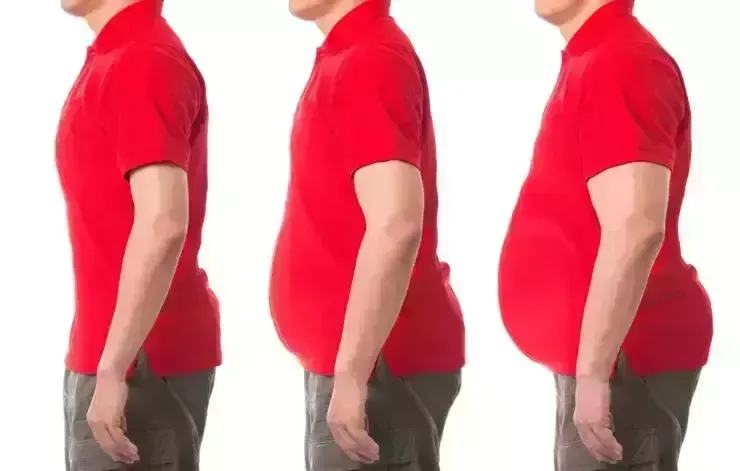HGH for weight loss: HGH, or human growth hormone, is a hormone produced by the anterior pituitary gland that increases during puberty and subsequently diminishes after the age of 40. It affects the liver, boosting protein synthesis, and the heart, increasing heart muscle size, bone density, perspiration, and production. Heat enhances the usage of glucose by the muscles during exercise, increases muscle mass and function, and reduces body fat mass and bad LDL cholesterol in the short term.

First, what is HGH?
The pituitary gland produces human growth hormone (hGH), which is a naturally occurring hormone. It’s necessary for cell development, regeneration, and reproduction.
HGH helps the brain and other organs maintain, generate, and repair healthy tissue. This hormone can help speed up the healing process after an injury and aid in the recovery of muscle tissue after exercise. This aids in the development of muscle growth, the acceleration of metabolism, and the burning of fat.
HGH has also been linked to improved skin quality and appearance. It’s meant to slow down the aging process and treat age-related illnesses. However, there is a scarcity of research to back up these claims.
HGH activates metabolism by boosting metabolic processes in cells. It causes the liver to produce an insulin-like protein that aids in the formation of cartilage cells. This is important for bone and organ growth, as well as the creation of muscle protein.. Read More
Is HGH Suitable for weight loss?
Hormones are mostly used to treat disorders that cause a delay in general growth or short stature. It was discovered that persons who have a growth hormone shortage have higher rates of obesity than the general population, which prompted researchers to look into the idea of using it to cure obesity.
Do athletes abuse the hormone?
Athletes take large doses of growth hormone to improve sports performance and increase muscle mass while reducing fat, but studies have yet to show that it is beneficial to those who do not have a growth hormone shortage.
Due to its effect on insulin resistance, fluid retention, muscle and joint soreness, and swelling of the hands and legs, the FDA did not approve the hormone as a medicine to treat obesity, and the Olympic Committee banned its usage.
Acromegaly and joint characteristics, inflammation, bone and joint abnormalities, hypofunction of the sex glands, diabetes, and lipid metabolic issues are all caused by long-term usage of large doses. Chronic usage of growth hormone in high dosages increases the risk of cancer and, in the end, causes muscle weakening, which is the opposite of what it was intended to do.
Actually No Weight Loss
When adults with HGH shortage due to pituitary dysfunction are given HGH replacement, their body composition improves, with increased bone and muscular mass and decreased fat deposits.
According to Nicholas Tritos, MD, who co-authored a paper analyzing the effectiveness of HGH for weight loss in obese people, it does not cause weight loss in obese people.
“Our findings showed slight changes in body composition, a small decrease in body fat, and an increase in muscle mass, but weight did not change overall,” he says. “When a person is lacking in growth hormone due to real pituitary illness, there are more noticeable alterations.”
HGH therapy was connected to a minor decrease in fat and an increase in lean mass, but no change in body weight, according to another study. HGH is not an effective treatment for obesity, according to the researchers, who also stated that more research is needed.
Furthermore, the American Association of Clinical Endocrinologists has said that HGH is not indicated for obese people.
Summary
The use of human growth hormone (HGH) for weight loss, muscular gain, or anti-aging is experimental and contentious. HGH injections are thought to reduce fat storage and enhance muscle building to some extent, however studies have shown that this is not a safe or effective weight loss solution.
It’s best to avoid HGH for weight loss until more studies can prove its long-term safety and effectiveness.
Unfortunately, when it comes to losing weight, there are no magic bullets. In order to lose weight safely, you must consume fewer calories than you expend through physical exercise. More fruits and veggies, as well as a good pair of sneakers, should be on your shopping list.